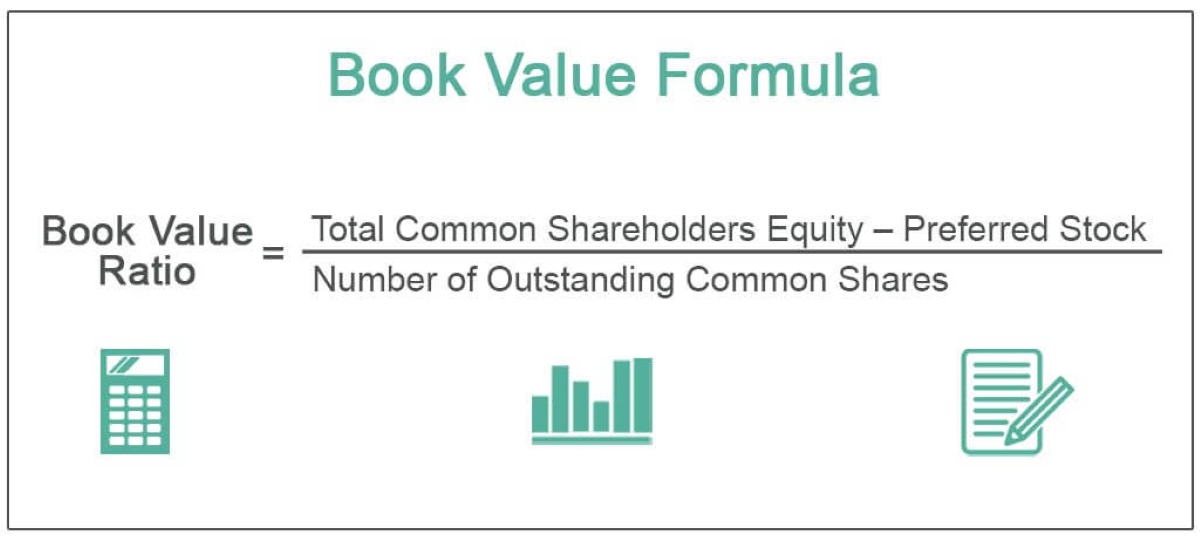

Finance
How To Get Experience In Accounting
Modified: February 21, 2024
Learn how to gain valuable experience in the field of finance through internships, part-time jobs, and networking opportunities, ensuring a brighter future in accounting careers.
(Many of the links in this article redirect to a specific reviewed product. Your purchase of these products through affiliate links helps to generate commission for LiveWell, at no extra cost. Learn more)
Table of Contents
- Introduction
- Importance of Experience in Accounting
- Traditional Pathways to Gain Accounting Experience
- Internships in Accounting
- Volunteering in Accounting Organizations
- Part-time Jobs in Accounting
- Networking and Mentoring in the Accounting Field
- Taking on Accounting Projects or Freelancing
- Utilizing Continuing Education and Professional Development Opportunities
- Leveraging Online and Virtual Accounting Experiences
- Conclusion
Introduction
Welcome to the world of accounting, where numbers reign supreme and balance sheets hold the key to financial success. As a aspiring accountant, you know that gaining experience in the field is crucial for your professional growth and advancement. Whether you dream of working at a prestigious accounting firm, starting your own practice, or climbing the corporate ladder, having practical experience in accounting is essential.
In this article, we will explore different pathways to gain valuable experience in the accounting field, ranging from traditional methods to modern approaches. We will discuss the significance of experience in accounting, and how it can set you apart from the competition. Whether you are a recent graduate, a career changer, or a student just starting your accounting journey, this article will serve as a helpful guide to help you navigate through the world of accounting and gain the necessary experience to excel.
Accounting is a profession that requires a combination of technical knowledge, analytical skills, and practical experience. While formal education provides a strong foundation, real-world experience is what truly sets accountants apart. This experience allows accountants to apply their knowledge to real-world scenarios, to navigate complexities, and to provide meaningful insights and recommendations to clients or employers.
Moreover, gaining experience in accounting can open doors to a wide range of opportunities. It can help you build a network, establish professional connections, develop an understanding of specific industries, and gain deep insights into the financial operations of organizations. Experience in accounting is a powerful asset that not only enhances your skills and knowledge but also increases your marketability in the ever-evolving financial landscape.
So, let’s dive into the various methods and strategies you can employ to gain experience in the accounting field. Whether you choose traditional pathways or explore modern approaches, each avenue can provide unique opportunities for growth and development in your accounting career.
Importance of Experience in Accounting
Experience is undeniably crucial in the field of accounting. It goes beyond theoretical knowledge and allows accountants to bridge the gap between academia and practice. Here are several reasons why experience is essential for accountants:
- Practical Application of Knowledge: While classroom education provides a solid theoretical foundation, real-world experience allows accountants to apply that knowledge to practical scenarios. It helps them develop critical thinking skills, problem-solving abilities, and the ability to make informed decisions in complex financial situations.
- Understanding of Industry-Specific Practices: Different industries have unique accounting practices and regulations. By gaining experience, accountants can develop a deep understanding of industry-specific requirements, best practices, and compliance measures. This knowledge not only enhances their expertise but also enables them to provide tailored financial solutions for clients or organizations in specific sectors.
- Building Analytical Skills: Experience in accounting provides opportunities for accountants to develop and sharpen their analytical skills. Through analyzing financial statements, conducting audits, and preparing financial reports, accountants refine their ability to identify trends, detect anomalies, and make data-driven recommendations. These analytical skills are essential for providing valuable insights to clients or organizations.
- Client Interaction and Relationship Building: Accountants often work closely with clients, whether as external consultants or internal members of an organization’s finance team. Experience in accounting allows accountants to develop strong interpersonal skills and build meaningful relationships with clients. Effective communication, active listening, and understanding clients’ needs are crucial for success in the accounting profession.
- Hands-on Exposure to Accounting Systems: Experience in accounting provides hands-on exposure to various accounting software, tools, and systems used in the industry. This familiarity with accounting technology enhances efficiency, accuracy, and productivity, enabling accountants to adapt quickly to new software or processes.
- Enhanced Professionalism and Ethical Understanding: Through experience, accountants gain a deeper understanding of professional ethics, codes of conduct, and regulatory requirements. They become adept at handling sensitive financial information, maintaining confidentiality, and ensuring compliance with legal and ethical standards.
- Career Advancement Opportunities: In the competitive field of accounting, experience is often a differentiating factor when it comes to career advancement. Employers value candidates who can demonstrate a track record of practical experience, as it signifies their ability to apply knowledge effectively and deliver results. Whether it is securing a promotion, taking on more complex projects, or branching out into specialized areas of accounting, experience is crucial for continued career growth.
Overall, experience in accounting is instrumental in unlocking a myriad of opportunities and sharpening the skills necessary for success in the field. Whether it is through hands-on work, exposure to industry practices, or enhanced professionalism, experience is the key that opens doors to a prosperous accounting career.
Traditional Pathways to Gain Accounting Experience
When it comes to gaining experience in accounting, there are several traditional pathways that have proven to be effective over the years. These pathways provide a structured approach to learning and allow aspiring accountants to garner valuable experience. Here are some of the traditional routes you can take:
- Internships in Accounting: Internships are a tried and tested method for gaining hands-on experience in the accounting field. Many accounting firms, corporations, and financial institutions offer internship programs for students and recent graduates. These programs provide an opportunity to work alongside professionals, learn industry-specific practices, and contribute to real-world projects. Internships can be part-time or full-time, and they often lead to valuable networking opportunities and potential job offers.
- Volunteering in Accounting Organizations: Non-profit organizations, community groups, and charitable institutions often require accounting and financial assistance. Volunteering your accounting skills can provide practical experience while making a positive impact on the community. You could offer your services to assist with bookkeeping, budgeting, financial analysis, or tax preparation. Volunteering not only enhances your technical skills but also demonstrates your commitment to social responsibility, which can be attractive to employers.
- Part-time Jobs in Accounting: Securing a part-time job in the accounting field can be a valuable way to gain practical experience while earning income. Look for opportunities in small accounting firms, local businesses, or even in the finance departments of larger organizations. Part-time roles, such as bookkeeping assistant or accounting clerk, expose you to day-to-day accounting tasks and processes, helping you hone your skills under the guidance of experienced professionals.
- Networking and Mentoring in the Accounting Field: Building professional connections and finding mentors in the accounting industry can provide invaluable guidance and opportunities. Join professional accounting associations, attend industry events, and connect with professionals through online platforms. Mentors can offer insights, advice, and even potential internship or job opportunities. Networking ensures that you stay informed about industry trends, gain exposure to different accounting practices, and open doors for collaboration and career advancement.
- Taking on Accounting Projects or Freelancing: Seek out accounting projects or freelance opportunities to gain hands-on experience. You can offer your services to small businesses or startups that may not have a dedicated accounting department. This allows you to apply your knowledge, work independently, and build a portfolio of real-world projects that demonstrate your abilities to future employers.
By exploring these traditional pathways, you can gain practical experience, develop your skills, and broaden your understanding of the accounting profession. Each of these routes offers unique opportunities to learn, grow, and demonstrate your commitment to pursuing a career in accounting.
Internships in Accounting
Internships in accounting are invaluable opportunities for aspiring accountants to gain hands-on experience in a professional setting. These programs provide a structured and supervised learning experience that bridges the gap between classroom knowledge and real-world application. Here are some key points to consider when pursuing an internship in accounting:
- Duration and Timing: Accounting internships can range in duration from a few months to a year, depending on the organization and the goals of the program. Internships are typically offered during the summer, but some firms also provide year-round opportunities. Planning ahead and researching internship programs that align with your academic schedule is crucial in securing these valuable positions.
- Types of Internships: Accounting internships can be found in various settings, including public accounting firms, corporate finance departments, nonprofit organizations, and government agencies. Consider your interests and career goals to determine the type of internship that best aligns with your aspirations. Public accounting internships, for example, provide exposure to auditing, tax preparation, and consulting services, while corporate internships focus on internal financial operations and reporting.
- Learning Objectives and Responsibilities: Internships in accounting offer a blend of learning opportunities and meaningful responsibilities. As an intern, you can expect to assist with tasks such as bookkeeping, financial statement analysis, data entry, tax preparation, or internal control testing. Additionally, you may have the opportunity to shadow experienced professionals, attend client meetings, and contribute to real projects under supervision. Clarifying the learning objectives and responsibilities will help you make the most of your internship experience.
- Networking and Mentoring: One of the significant advantages of accounting internships is the opportunity to network and build relationships with professionals in the industry. Take the initiative to connect with colleagues, attend networking events, and seek mentorship from experienced accountants. Building a strong professional network during your internship can lead to future job opportunities and valuable guidance in your career path.
- Professional Development: Internships offer an ideal environment for professional growth and development. Take advantage of training sessions, workshops, and seminars offered by the organization. Seek feedback from supervisors, actively participate in team meetings, and demonstrate your eagerness to learn and contribute. Use your internship as an opportunity to develop essential skills such as time management, effective communication, and problem-solving.
- Post-Internship Opportunities: A successful internship can open doors for future employment. Many accounting firms and organizations offer full-time positions to their interns who have demonstrated exceptional performance and fit within the company culture. Even if a full-time position is not available, the experience gained from the internship will greatly enhance your resume and make you a more competitive candidate for other job openings in the accounting field.
Internships in accounting provide a unique and valuable opportunity to gain practical experience, build a professional network, and enhance your knowledge and skills. Be proactive in your search, tailor your applications, and seize the chance to grow both personally and professionally through an internship in accounting.
Volunteering in Accounting Organizations
Volunteering in accounting organizations is an excellent way to gain practical experience while making a positive impact on the community. Non-profit organizations, community groups, and charitable institutions often require accounting and financial assistance, and your skills can help them fulfill their mission. Here are some key points to consider if you are interested in volunteering in accounting organizations:
- Identify Organizations: Start by identifying non-profit organizations or community groups that align with your interests and values. Look for organizations that rely on volunteers for their financial operations, budgeting, or bookkeeping. Research local charities, educational institutions, or religious organizations that may require accounting assistance.
- Offer Your Skills: Reach out to the identified organizations and express your interest in volunteering your accounting skills. Share your background, education, and your desire to contribute to their financial management. Explain how your expertise can help them in areas such as financial reporting, budget preparation, and grant management. Emphasize your commitment to making a positive impact and helping the organization achieve its goals.
- Duration and Time Commitment: Discuss with the organization the time commitment required for volunteering. It can range from a few hours a week to a more significant time investment, depending on the organization’s needs and your availability. Be upfront about your availability and ensure that you can commit to the required time commitment to fulfill your volunteer duties effectively.
- Types of Volunteering Opportunities: Accounting organizations may require assistance in various areas, including bookkeeping, financial statement preparation, tax preparation, or grant management. Assess the specific needs of the organization and see how your skills can best serve their financial operations. Volunteering in accounting organizations allows you to gain hands-on experience in tasks relevant to the field while contributing to a meaningful cause.
- Professional Growth: Volunteering in accounting organizations is not only an opportunity to give back but also a chance to develop your skills and expand your professional network. Take advantage of the experience to enhance your knowledge in specific areas of accounting, such as nonprofit accounting or grant management. Engage with other volunteers and professionals in the organization to gain insights and build connections in the non-profit sector.
- Long-term Benefits and Career Opportunities: Volunteering can have long-term benefits for your accounting career. It allows you to demonstrate your commitment to social responsibility and community involvement, which can be attractive to potential employers. Volunteering in accounting organizations also provides opportunities to network with professionals in the field, opening doors to future career opportunities or referrals.
Volunteering in accounting organizations not only provides practical experience but also allows you to make a difference in the community. By sharing your skills and knowledge, you can contribute to the financial stability and success of non-profit organizations while gaining valuable experience that strengthens your professional growth in the accounting field.
Part-time Jobs in Accounting
If you’re eager to gain practical experience in the accounting field while earning income, exploring part-time jobs can be a great option. Part-time accounting positions provide an opportunity to apply your knowledge, develop skills, and gain valuable experience while working in a professional setting. Here are some key points to consider when seeking part-time jobs in accounting:
- Types of Part-time Jobs: Part-time accounting jobs can be found in various industries and organizations, including small accounting firms, local businesses, or finance departments of larger companies. Some common part-time roles include bookkeeping assistant, accounting clerk, payroll administrator, or accounts receivable/payable assistant. Consider your interests and career goals to find a role that aligns with your aspirations.
- Job Search: Begin your job search by exploring job boards, company websites, or reaching out to local accounting firms directly. Utilize professional networking platforms such as LinkedIn to connect with professionals in the industry and stay updated on part-time opportunities. Networking within your community, including contacting local business owners or attending industry events, can also uncover part-time job opportunities that may not be publicly advertised.
- Flexible Schedule: One of the advantages of part-time accounting jobs is the flexibility they offer. Many part-time positions allow you to work flexible hours, which can be particularly beneficial if you are juggling other commitments such as education or family responsibilities. Make sure to communicate your availability and discuss potential scheduling arrangements during the application and interview process.
- Gaining Experience: Part-time accounting jobs provide valuable hands-on experience. Whether it’s assisting with bookkeeping, preparing financial statements, or managing accounts payable/receivable, these roles allow you to apply your knowledge and develop practical accounting skills. Additionally, working in a professional environment exposes you to real-world challenges and fosters a deeper understanding of accounting practices and processes.
- Networking and Professional Growth: While working part-time, take the opportunity to network with colleagues, supervisors, and professionals in the organization. Building relationships within the company can lead to mentorship opportunities, potential job referrals, or even advancement within the organization. Networking is a powerful tool that can expand your professional connections and open doors for future career opportunities.
- Resume Building: Part-time accounting jobs can significantly enhance your resume. They demonstrate your dedication to obtaining practical experience and working in a professional setting. Highlight the skills and responsibilities you acquired during your part-time job in your resume and cover letter when applying for future full-time positions or internships.
Part-time jobs in accounting offer a balance between gaining practical experience and earning income. They allow you to develop your skills, network with professionals, and build a strong foundation in the accounting field. Embrace these opportunities as stepping stones in your accounting career, as they can lead to further growth and success in the industry.
Networking and Mentoring in the Accounting Field
Networking and mentoring play a crucial role in professional development, and they are particularly important in the accounting field. Building strong connections and finding mentors can provide invaluable guidance, support, and opportunities for aspiring accountants. Here are some key points to consider when it comes to networking and mentoring in the accounting field:
- Join Accounting Associations and Organizations: Accounting associations and organizations provide excellent networking opportunities. Join professional accounting associations such as the American Institute of Certified Public Accountants (AICPA) or the Association of Chartered Certified Accountants (ACCA). Attend industry events, conferences, and seminars to connect with other professionals, exchange knowledge, and stay updated on industry trends.
- Utilize Online Networking Platforms: Take advantage of professional networking platforms such as LinkedIn to connect with professionals in the accounting field. Create a compelling and professional profile, join relevant groups, and engage in discussions to expand your network. Utilize these platforms to showcase your skills, accomplishments, and aspirations in the accounting field.
- Attend Career Fairs and Recruitment Events: Career fairs and recruitment events provide opportunities to engage with recruiters and professionals from accounting firms and organizations. Prepare a strong elevator pitch and bring copies of your resume to these events. Make an effort to speak with representatives, ask questions, and express your interest in potential internship or job opportunities.
- Seek Mentors in the Field: Finding mentors in the accounting field can provide valuable guidance and support. Seek professionals who have experienced success in their careers and are willing to share their knowledge and experiences. A mentor can provide insights, offer career advice, and help you navigate the challenges and decisions in your accounting journey.
- Attend Continuing Professional Education (CPE) Events: Continuing Professional Education (CPE) events not only help you improve your technical knowledge but also provide networking opportunities. Attend workshops, seminars, and webinars offered by accounting organizations or professional development institutions. Engage with other participants, ask questions, and connect with like-minded individuals in the field.
- Participate in Industry Webinars and Forums: Online platforms offer a wealth of resources and networking opportunities. Participate in webinars and online forums specific to the accounting field. Engage in discussions, ask questions, and share your insights and experiences. Connecting with professionals through online platforms can lead to valuable connections and potential mentoring relationships.
Networking and mentoring are essential components of a successful accounting career. They provide opportunities to learn, grow, and build connections with professionals who can offer guidance, opportunities, and support. Embrace these networking opportunities and nurture relationships with mentors to accelerate your professional development in the accounting field.
Taking on Accounting Projects or Freelancing
Taking on accounting projects or freelancing can provide valuable hands-on experience and diversify your skillset. It allows you to apply your knowledge and expertise to real-world scenarios, work independently, and build a portfolio of successful projects. Here are some key points to consider when taking on accounting projects or freelancing:
- Identify Target Clients: Determine the type of clients or industries that would benefit from your accounting services. Consider small businesses, startups, entrepreneurs, or individuals who may require assistance with bookkeeping, tax preparation, or financial analysis. Research local businesses, use online platforms, or reach out to your network to find potential clients who align with your target market.
- Showcase Your Expertise: Highlight your skills and expertise when promoting your accounting services. Create a professional website or online portfolio that showcases your qualifications, past projects, and testimonials from satisfied clients. Emphasize your knowledge of accounting principles, software proficiency, and industry-specific experience to attract potential clients.
- Offer a Range of Services: Provide a diverse range of accounting services to cater to different client needs. This may include bookkeeping, financial statement preparation, tax planning and preparation, budgeting, or financial consulting. Offering a comprehensive suite of services positions you as a trusted accounting professional who can provide holistic financial solutions.
- Network and Build Referral Relationships: Networking is crucial in expanding your client base. Attend local business events, join professional associations, and connect with other professionals who might refer clients to you. Build relationships with lawyers, financial advisors, or business consultants who often come across individuals or businesses in need of accounting services.
- Deliver High-Quality Work: Consistently provide exceptional service and deliver high-quality work. Ensure accuracy, attention to detail, and timely completion of projects. Client satisfaction is key for building a reputable accounting freelance business, as happy clients are more likely to refer you to their network and provide positive testimonials.
- Continued Professional Development: Stay up to date with the latest accounting regulations, software, and industry trends. Continuing professional development (CPD) ensures that your skills and knowledge remain current and relevant. Attend workshops, webinars, and training programs to enhance your expertise and offer advanced accounting solutions to your clients.
- Manage Finances and Professional Liability: As a freelancer, it is essential to manage your finances responsibly and protect yourself against professional liability. Set up a separate business bank account, maintain accurate financial records, and consider obtaining professional liability insurance to safeguard against potential legal claims.
Taking on accounting projects or freelancing provides an opportunity to gain practical experience, expand your client base, and diversify your skills. With dedication, professionalism, and a commitment to delivering high-quality work, you can establish a successful accounting freelance business that helps you grow in your career and contributes to the financial success of your clients.
Utilizing Continuing Education and Professional Development Opportunities
Continuing education and professional development are crucial aspects of a successful accounting career. Embracing these opportunities allows accountants to stay up to date with industry trends, expand their knowledge, and enhance their skillset. Here are some key points to consider when utilizing continuing education and professional development opportunities:
- Identify Relevant Topics: Stay informed about current developments in the accounting field and identify areas where you can deepen your knowledge. Develop a list of topics that are relevant to your role or industry, such as tax law changes, emerging accounting standards, or advancements in accounting software.
- Attend Workshops and Webinars: Workshops and webinars offer a convenient way to learn and develop new skills. Look for educational opportunities offered by professional accounting organizations, training institutes, or online platforms. Participating in these sessions can provide insights, practical tips, and a chance to interact with industry experts and fellow professionals.
- Pursue Professional Certifications: Professional certifications such as the Certified Public Accountant (CPA), Certified Management Accountant (CMA), or Certified Internal Auditor (CIA) can enhance your credibility and marketability in the accounting field. Identify the certification that aligns with your career goals and invest time and effort into preparing for the exams.
- Enroll in Continuing Professional Education (CPE) Programs: Continuing Professional Education (CPE) programs are designed to help accountants meet their ongoing educational requirements. These programs offer a variety of topics and formats, including seminars, self-study courses, and online modules. Engage in CPE programs to fulfill mandatory CPE hours and broaden your knowledge base.
- Participate in Industry Conferences and Events: Accounting conferences and events provide excellent opportunities for learning, networking, and staying abreast of industry trends. Attend local, national, or international conferences to gain insights from keynote speakers, attend educational sessions, and connect with professionals from various sectors of the accounting field.
- Explore Specialized Training Programs: In addition to general accounting knowledge, consider specialized training programs that focus on specific areas such as forensic accounting, financial analysis, or tax planning. These programs can deepen your expertise in particular niches and open doors to specialized accounting roles.
- Engage in Self-Study and Reading: Enhance your knowledge and keep up with the latest industry trends by engaging in self-study and reading. Read accounting textbooks, industry publications, and professional journals to expand your understanding of various accounting topics. Stay curious and seek out resources that challenge your thinking and provide new perspectives.
Utilizing continuing education and professional development opportunities is essential for staying competitive and advancing your accounting career. By embracing these opportunities, you can stay up to date with industry changes, enhance your skillset, and demonstrate a commitment to lifelong learning in the dynamic field of accounting.
Leveraging Online and Virtual Accounting Experiences
In today’s digital age, online and virtual accounting experiences have become increasingly valuable and accessible. Leveraging these opportunities allows accountants to gain practical experience, expand their knowledge, and network with professionals around the world. Here are some key points to consider when leveraging online and virtual accounting experiences:
- Online Courses and Webinars: Online courses and webinars provide a flexible and convenient way to enhance your accounting knowledge and skills. Look for reputable platforms that offer courses in various accounting topics, such as financial statement analysis, taxation, or auditing. These online resources often include interactive learning materials, quizzes, and access to expert instructors.
- Virtual Internships: Virtual internships in accounting offer a unique opportunity to gain practical experience and collaborate with professionals remotely. These internships allow you to work on real-world accounting projects, communicate with teams using online tools, and receive mentorship from experienced professionals. Virtual internships provide the flexibility to balance your schedule while still gaining valuable hands-on experience.
- Industry-Specific Online Communities: Joining online communities focused on accounting and finance can provide networking opportunities and a platform for exchanging knowledge and insights. Engage in discussions, ask questions, and share your own expertise to connect with professionals from diverse backgrounds and enhance your understanding of industry-specific practices and challenges.
- Online Accounting Software and Tools: Familiarize yourself with online accounting software and tools that are widely used in the industry. Many accounting software providers offer online training resources and tutorials to help you get acquainted with their platforms. Developing proficiency in these tools not only enhances your productivity but also increases your marketability in the accounting field.
- Virtual Conferences and Workshops: Virtual conferences and workshops have become increasingly popular, offering the opportunity to learn from industry experts and connect with professionals worldwide. Participate in virtual accounting conferences and workshops to gain insights, attend informative sessions, and network with like-minded individuals. These virtual events allow you to access valuable resources and expand your professional network from the comfort of your own space.
- Online Networking and LinkedIn Groups: Engaging in online networking platforms, such as LinkedIn, can help you connect with professionals in the accounting field. Join industry-specific LinkedIn groups, participate in discussions, and build relationships with others who share similar interests and goals. Online networking allows you to expand your professional network globally and stay up to date with industry news and trends.
- Virtual Mentorship and Coaching: Take advantage of virtual mentorship and coaching opportunities to receive guidance and advice from experienced professionals. Virtual mentorship programs connect mentees with mentors who can provide career insights, offer guidance on navigating the accounting field, and help you set and achieve your professional goals.
Leveraging online and virtual accounting experiences offers flexibility and convenience while still providing valuable opportunities for professional growth. By embracing these digital resources, you can enhance your accounting knowledge and skills, expand your network, and stay current with industry trends across geographical boundaries.
Conclusion
Gaining experience in the accounting field is essential for aspiring accountants looking to excel in their careers. Through practical application and exposure to real-world scenarios, accountants develop the skills, knowledge, and confidence necessary to thrive in the industry. In this article, we explored various pathways to gain accounting experience, ranging from traditional methods to leveraging online and virtual opportunities.
Internships in accounting provide hands-on experience and the chance to work alongside professionals in the field. Volunteering in accounting organizations allows accountants to apply their skills while making a positive impact on the community. Part-time jobs in accounting offer a balance of experience and income, providing opportunities to refine skills and build professional connections. Networking and mentoring open doors to valuable guidance and potential job opportunities. Taking on accounting projects or freelancing enables accountants to gain practical experience and expand their client base. Continuing education and professional development opportunities allow accountants to stay current with industry trends and enhance their skillset. Utilizing online and virtual experiences provides flexibility and accessibility while still offering valuable learning and networking opportunities.
By combining these different pathways to gain experience in accounting, accountants can build a solid foundation, develop expertise, and establish themselves as competent professionals in the field. It is important to continuously seek out opportunities, network with others, and engage in lifelong learning to stay relevant and competitive in the ever-evolving accounting landscape.
Remember, experience is key in the accounting field, and the more diverse and comprehensive your experience, the better positioned you will be for success. Embrace the various pathways available to you, leverage technology, and continue to grow both personally and professionally. With dedication and a passion for learning, you can forge a fulfilling and prosperous career in the exciting world of accounting.














